On December 9th, 2019, the 4th Meeting of the Governing Board of Regional Centre for Space Science and Technology Education in Asia and the Pacific (China) was held at the Conference Centre of New Main Building, Beihang University. The meeting was hosted by Mr. Zhang Kejian, new Chairperson of the Governing Board of the Centre and Administrator of China National Space Administration (CNSA). Mr. Xu Huibin, Director of the Advisory Committee of the Centre and President of Beihang University; Mr. Tao Zhi, Director of the Centre and Vice President of Beihang University; Mr. Weng Jingnong, Executive Director of the Centre and Dean of International School, Beihang University; Governing Board Members of the Centre; Directors of other Regional Centres of the United Nations; diplomatic envoys to China, and representatives of international organizations such as UNOOSA were in attendance.
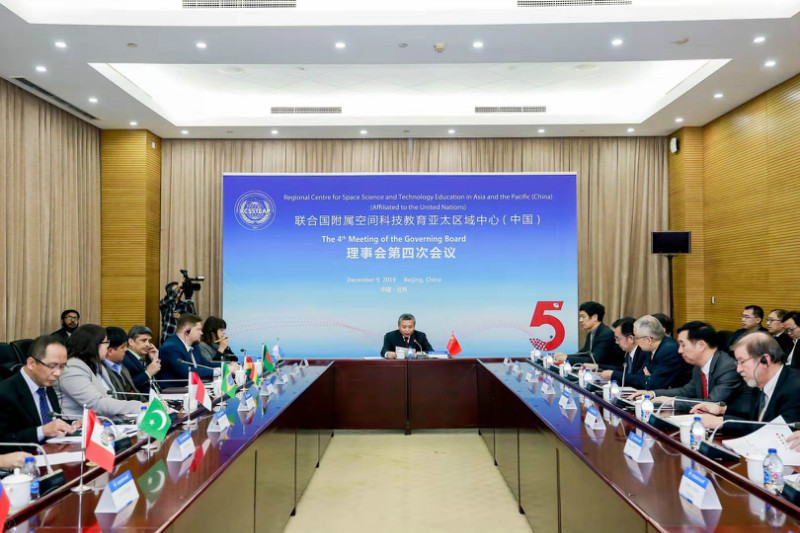
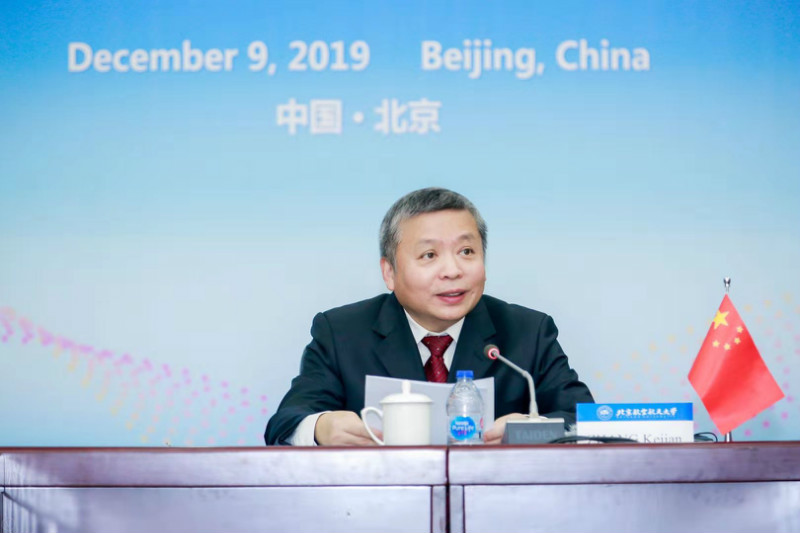
At the meeting, the Governing Board reviewed the report of the Advisory Committee and Biennial Work Report 2018-2019 of the Centre, adopted Biennial Work Plan 2020-2021 of the Centre, and approved to add the Space Science and Environment as a new major of MASTA Program. Following the UN’s initiative of “the peaceful use of space technology for the benefit of all mankind”, centering on the biennial work plan of the Centre, the Governing Board Members had in-depth exchange on strengthening the team and system construction, promoting the sustainable development of the Centre, organizing education and training, better serving the Member States and other developing countries of the Centre, enhancing the capacity and infrastructure construction, expanding the influence of the Centre, and promoting the economic and social development of the Asia Pacific region through space cooperation and talent training.
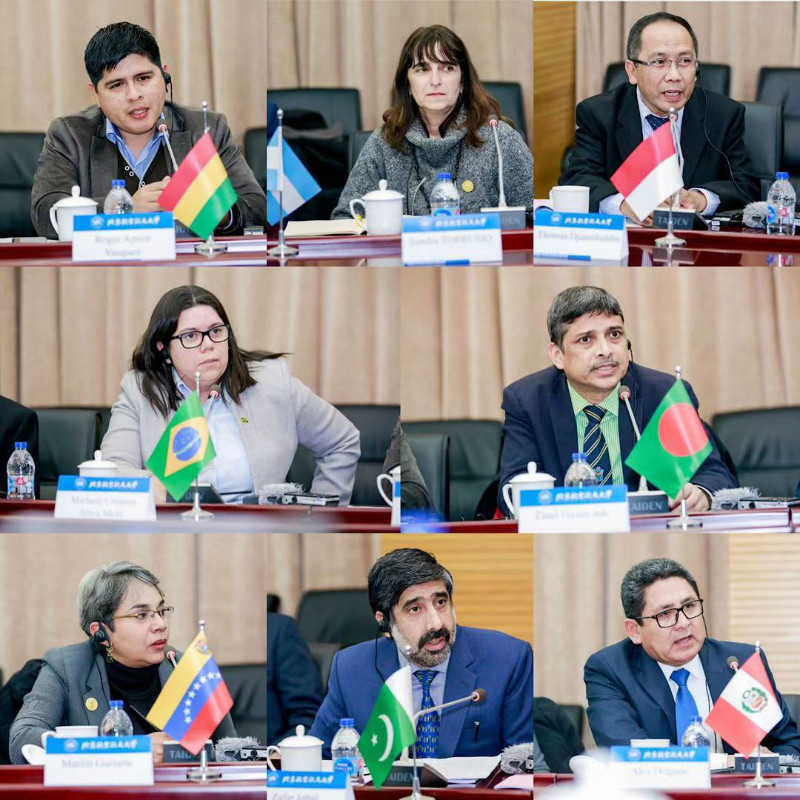
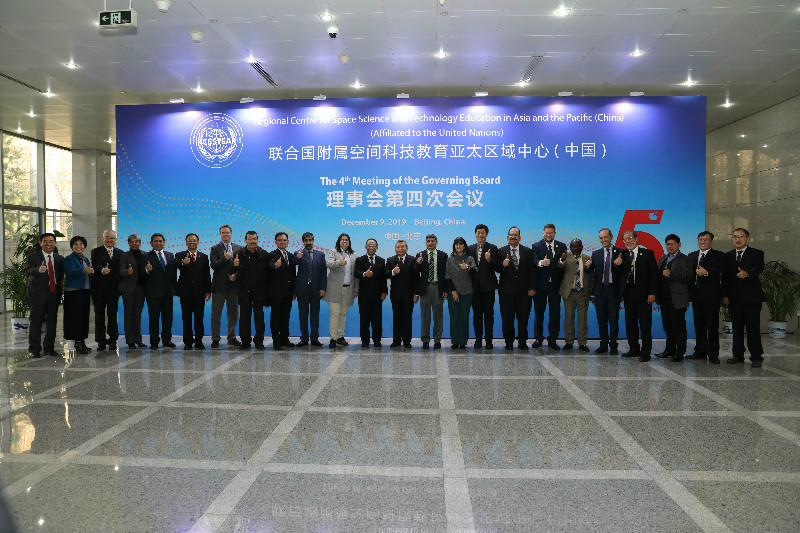
After the Governing Board meeting, the 5th anniversary celebration of the Centre was held in The First Lecture Hall of Conference Centre of New Main Building, Beihang University. The conference reviewed the achievements made in education and training, international cooperation and capacity building in the five years since the establishment of the Centre, summarized the “UGII” development model of the Centre (Hosted by University, supported by Chinese Government, work with related International Organizations (UNOOSA, APSCO, etc.) and Industry/Enterprise Participation), and looked forward to the vision to the future development of the Centre.
Mr. Wu Yanhua, deputy director of the CNSA, delivered a speech on behalf of the host country: “China as an initiator and the host country”, he said, “is looking forward to work together with the Member States and international community, focusing on the common goal of ‘promote sustainable development of the space science and technology education’, adhering to the ‘win-win cooperation’ space international cooperation and development concept and the original intention of space science and technology education development, persisting in traction with space projects, promoting the ‘avenue’ of science, technology and education combination, to contribute China’s wisdom and strength to the economic and social development of the Asia-Pacific region”.
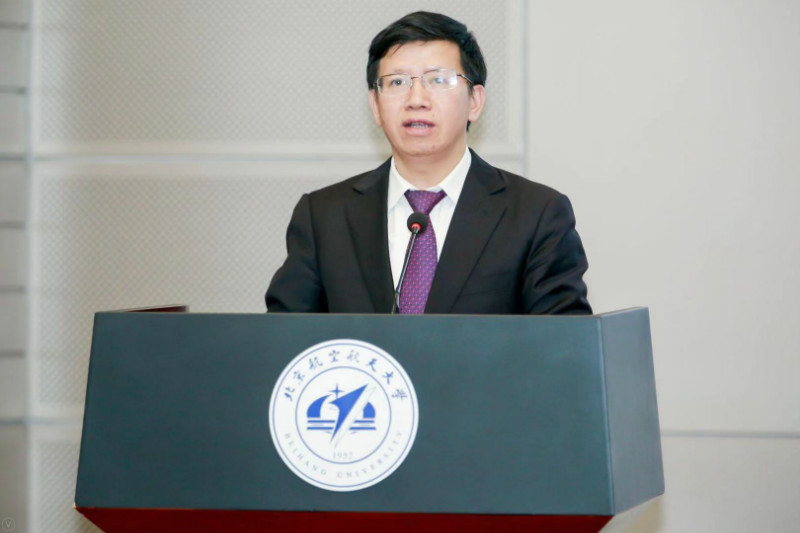
Mr. Luc St-Pierre, Representative of UNOOSA, fully affirmed the positive efforts of RCSSTEAP for the peaceful use of outer space for the benefit of all mankind and the assistance of space science and technology education development in the Asia-Pacific region, he praised the innovative contribution of the Centre in promoting the “Programme on Space Applications” initiated by the United Nations and its leading role in promoting the construction of the six (6) Alliance of Regional Centres of the United Nations.
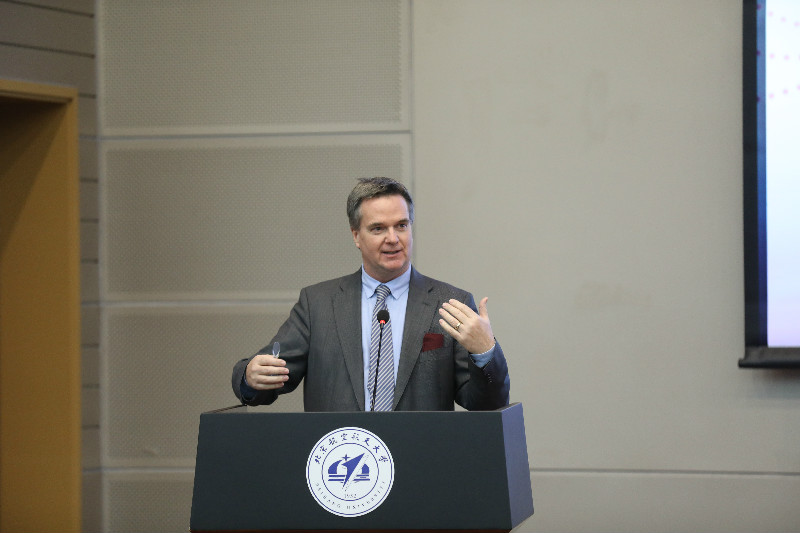
President Xu Huibin said that the peaceful use of outer space is consistent advocacy and proposition of the United Nations. It is the common pursuit of many countries including China, to explore and develop the vast space full of mysteries and make it beneficial to all mankind, and it is also the obligatory mission of Beihang University. As the supporting unit of the Regional Centre for Space Science and Technology Education in Asia and the Pacific (Affiliated to the United Nations), Beihang University has always been committed to promote the development of International Space Science and technology education by giving full play to its advantages in disciplines and teaching team. Since its establishment five years ago, the Centre has adhered to the development concept of “Openness, Innovation and Inclusiveness”. In the five (5) educational fields of Remote Sensing and Geographic Information Systems (RS&GIS), Satellite Communications, Global Navigation Satellite System (GNSS), Micro-satellite Technology and Space Law and Policy, 237 master and doctoral participants have been trained for 24 developing countries, and more than 20 short-term programmes were held for nearly 1,000 students from 64 countries.
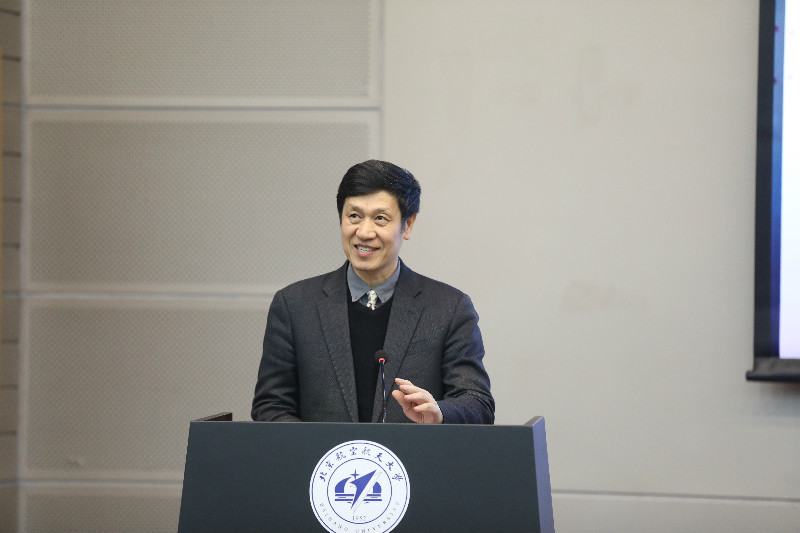
The Outstanding Contribution Award and Outstanding Contribution Award of the Centre were also bestowed at the meeting. Eight (8) units including Shenzhou Institute, China Academy of Space Technology, Long March College of China Academy of Launch Vehicle Technology, Asia Pacific Space Cooperation Organization (APSCO) and UN-SPIDER Beijing office won the Outstanding Contribution Award.
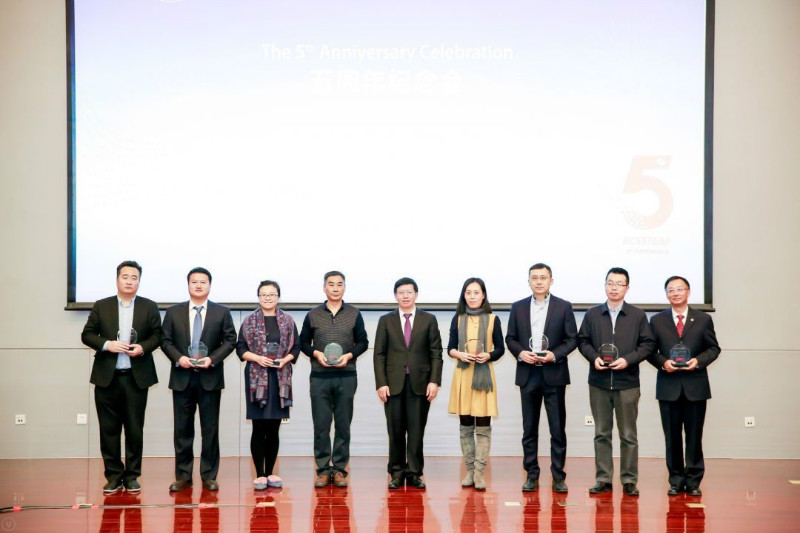
Five (5) teachers, including Mr. Jin Tian and Ms. Tan Yumin, took the stage as representatives of the Centre to receive the Outstanding Contribution Award.

After that representatives of partners, teachers, participants and graduates of the Centre made speeches and shared their stories with the Centre.
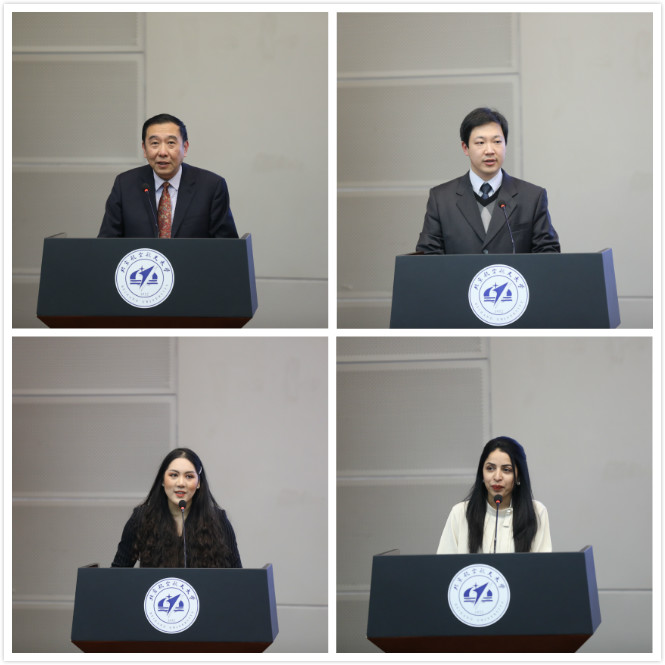
During the meeting, a retrospective exhibition of the Centre’s achievements was also held at the Conference Center of New Main Building, Beihang University.
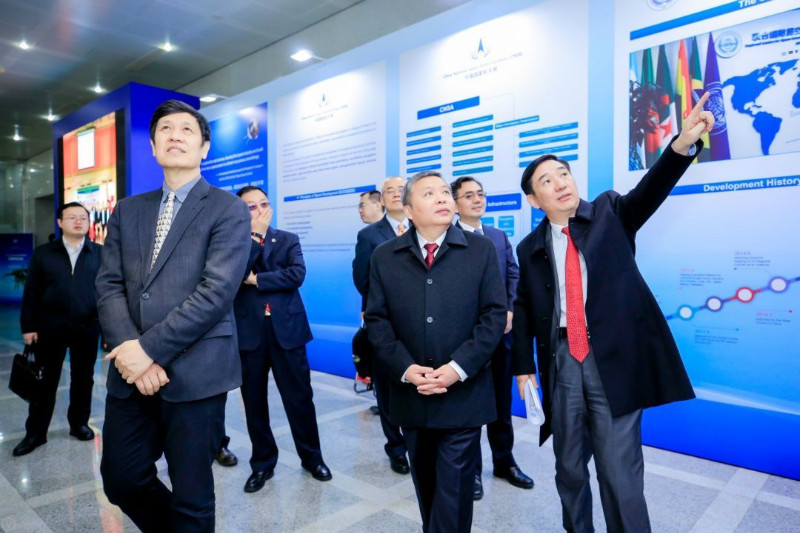
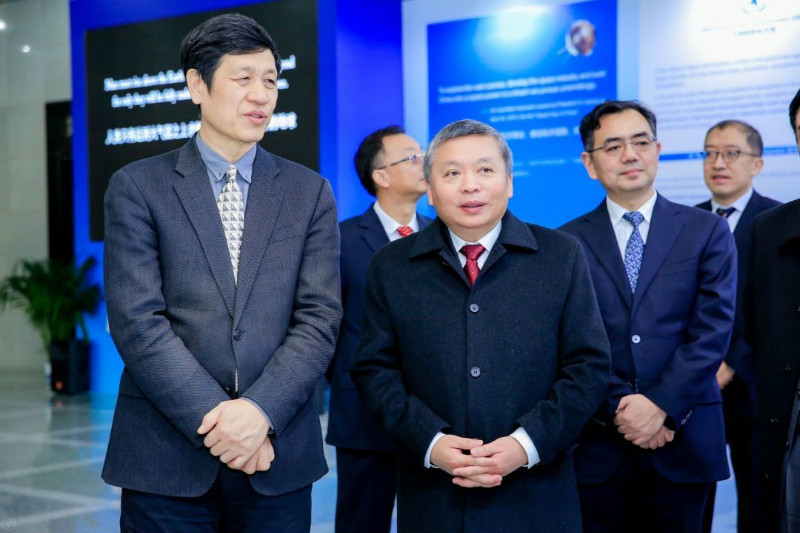
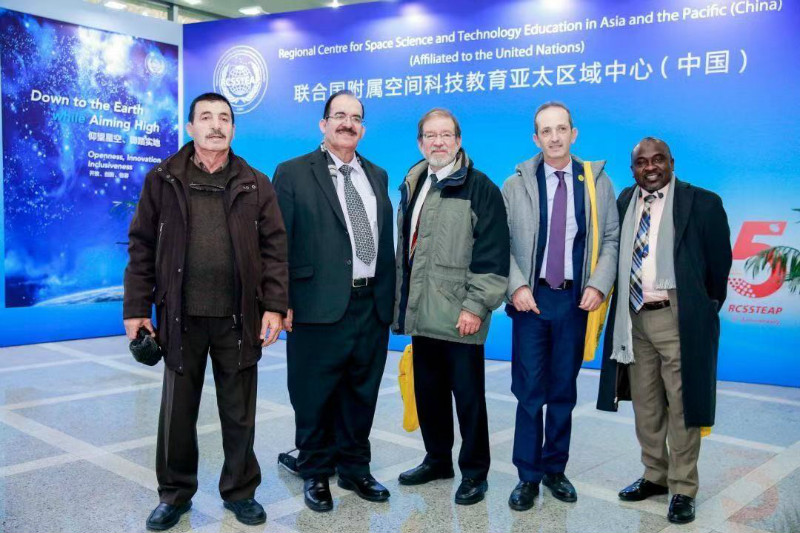
After the 5th Anniversary Celebration`, the Centre held the 2020 New Year Reception in the Vision Hotel, which was hosted by the participant of the Centre and presented wonderful performances by Chinese and foreign students. Friends at home and abroad gathered to talk and discuss cooperation and development.
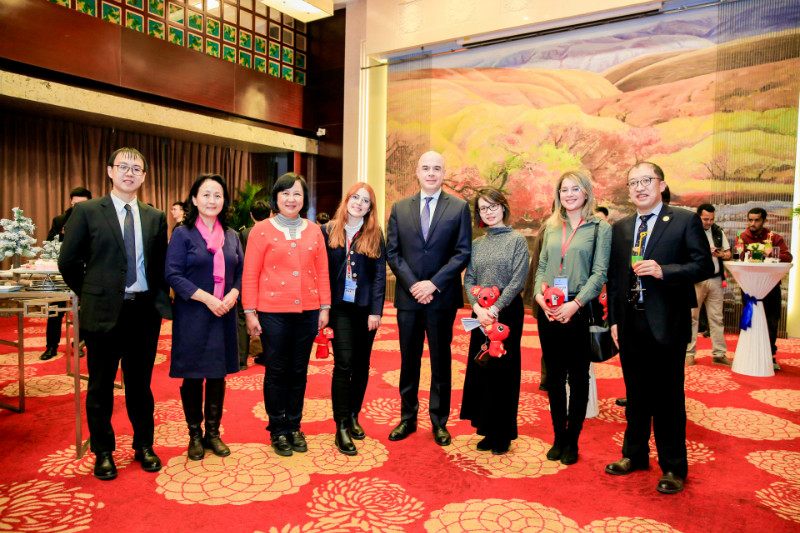
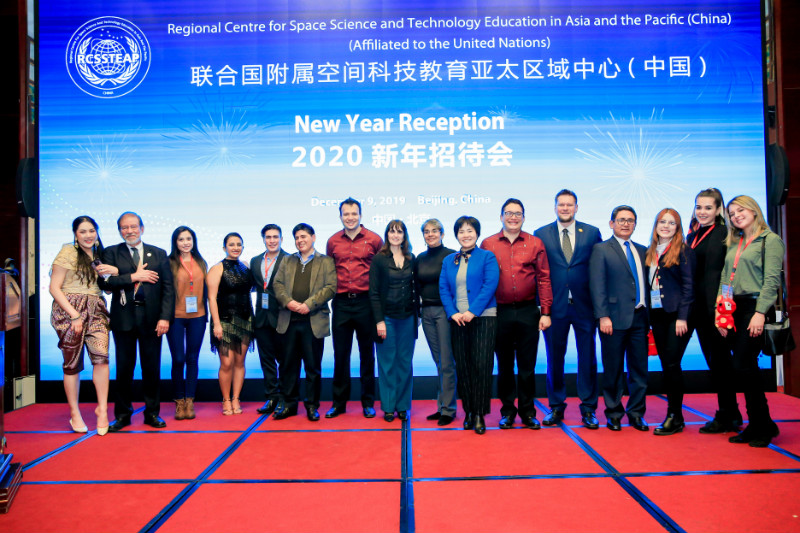
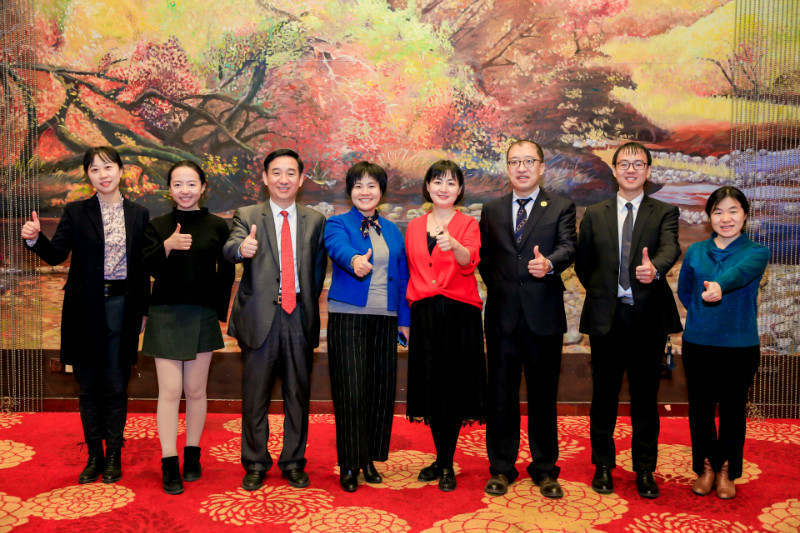
The Regional Centre for Space Science and Technology Education in Asia and the Pacific (Affiliated to the United Nations) was established in 2014 with Beihang University as the supporting unit. It is the only United Nations affiliated institution in Chinese universities and the first inter-governmental regional agency for space science and technology education in the Asia-Pacific region. With the mission of “promoting the peaceful use of space technology for the benefit of all mankind” and integrating the world’s excellent educational resources and innovating talent training mode, the Centre is committed to build a world-class space science and technology education institution, improve the education and training level and application capability of space science and technology in Member States of the Centre and other developing countries, and promote the sustainable development of regional economy and society.
In the past five years, by utilizing superior technology and educational resources, the Centre has carried out talent training and degree education with the mission of “cultivating high-level, innovative and international space technology application talents for developing countries”, adhering to the development strategy of “Openness, Innovation and Inclusiveness” and the development mode of “Hosted by University, supported by Chinese Government, work with related International Organizations (UNOOSA, APSCO, etc.) and Industry/Enterprise Participation”. In the five (5) educational fields of Remote Sensing and Geographic Information Systems (RS&GIS), Satellite Communications, Global Navigation Satellite System (GNSS), Micro-satellite Technology and Space Law and Policy, 237 master and doctoral students were trained for 24 developing countries, and more than 20 short-term programs were held for nearly 1,000 students from 64 countries. In the past five years, the Centre has established 9 Member States, developed more than 30 partners including international organizations, space agencies and companies, proposed and led the implementation of major cooperation projects such as the multi-mission Micro-satellite constellation and APSCO small student satellite (SSS Project), providing an important carrier for space technology cooperation in the Asia Pacific Region.

